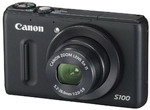Wednesday, July 14, 2010
Topaz Labs DeNoise 4.1 Review: A New Generation of Noise Reduction Software
Posted by Lee Yuan Sheng in "Digital Home Software" @ 07:00 AM
Banding
Here comes the first of three complaints, and this is the minor one. Topaz DeNoise attempts to preserve detail when removing noise; unfortunately, it leaves some readout noise in place. What this means is that it can highlight the banding resulting from readout noise. Here is a sample (it is much clearer in the full test shot though):

Figure 5: Slight banding on this crop; if you see the full-sized image you'll notice plenty of such patterns all over the night sky.
Speed
Now, here comes my big complaint. Topaz DeNoise is SLOW. S-L-O-W. Here's how they stack up when removing noise from 12 megapixel files:
Noise Ninja: ~2 seconds
Topaz Denoise: ~45-50 seconds
This is on my main machine, with a 6GB of RAM and an Intel Core i7 920 overclocked to 3.0Ghz. Doing this review and all the iterations used when testing has been a pain, since waiting 45-50 seconds for each try gets old very fast after the fifth attempt or so.
I briefly did a search on Topaz DeNoise being slow and chanced on a couple of threads in both DPReview's forums as well as Topaz's own forums. It is acknowledged that Topaz DeNoise is not the fastest, but they are working on making it faster in the future. Currently though, if your machine is not "fast", like a notebook class Intel Core 2 Duo, expect 12 megapixel images to take 2-3 minutes to complete.
Inconsistency
This would normally be a minor complaint, but here it is not. Topaz DeNoise ships with a number of presets, labelled as "JPEG Light", "RAW Strong", and so on. I discovered when playing with the presets that each set of settings will not give the same results from photo to photo (as I mentioned above). Before you go "doh, each photo is different", let me explain.
For example, in Noise Ninja, I normally set the noise reduction to a particular configuration of settings. They generally work well for 90% of the time, and the other 10% I just need to nudge the sliders a few levels one way or the other. Even so, the 10% is usually just a case of "little-less-than-expected"
In Topaz DeNoise, I found that different images require quite different settings. Generally as I prefer my noise reduction to be light, I tried using the "RAW Light" preset. Imagine my surprise than in some images (usually, but not always, the noisier ones), "RAW Light" felt like "RAW Does-nothing-whatsoever".
Slowness + Inconsistency = ?
Here is where inconsistency becomes a big problem. The implication of this is two-fold: Firstly, you have to do the trial-and-error way of testing quite a bit. This means spending time playing with the settings. Coupled with the slowness of the plug-in, it means that more time will be invested into getting the image look right.
Secondly, it also means you cannot work around the slow problem by batching, especially if it involves a large number of photos taken in a wider range of exposure and ISO settings.
Conclusion
I know I sound a bit negative here, but while good, and at times brilliant, Topaz DeNoise just is not the cure-all for everyone. While at times it can exceed the last generation of noise reduction software by a lot, there are also times it only barely bests the (older) competition. Coupled with the slowness and the inconsistency of the settings, it means the product just is not for everyone. My conclusion is thus two-fold.
For fine art photographers and anyone who only edits a few photos at a time while striving for perfection, this comes highly recommended. For wedding, event or any kind of photographers who deal with large volumes of photos, you may want to look at a faster solution that is almost as good. Also not recommended if you have an older camera and want to extend its life a bit more with better noise reduction solutions.
I look forward to the next version of Topaz DeNoise though; if they get some kind of GPU acceleration going and bring down the processing time to one-fifth (or even less) of what it is now, I think it will be an unreserved recommendation for any serious photographer.
Lee Yuan Sheng has been shooting (with cameras that is) for some 17 years, and never ceases to marvel at both what cameras can do now, and how people can complain about noise in this day and age. He is also a little old-fashioned in preferring a little grain in his images, so please hold off the emails saying the images shown are not silky smooth.

Do you enjoy using new hardware, software and accessories, then sharing your experience with others? Then join us on the Thoughts Media Review Team! We're looking for individuals who find it fun to test new gear and give their honest opinions about the experience. It's a volunteer role with some great perks. Interested? Then click here for more information.













